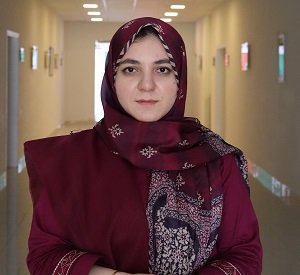| Mon. May 19, 2025 |
 |
|
||
|
||||
| ||||

The story of the “Indian false flag operations” continued as recently on April 22, 2025, when a deadly terror attack was carried out against unarmed innocent civilians in Pahalgam who were there to visit the valley as tourists. Reportedly, 26 tourists were killed on the spot, and two more critically injured breathed their last on April 24, 2025, with the other 20 critically injured still in the ICU. The attack left yet another mark on the lives of Kashmiri people, being threatened, and speaks highly of the Indian forces’ inability to secure the valley from terrorism. India has again pointed fingers at Pakistan. In the aftermath of this unfortunate incident. India responded by diplomatic protest in the form of the adjournment of the Indus Waters Treaty (IWT) (1960) with Pakistan and cancellation of Pakistani visas, asking Pakistani nationals to leave the country within 48 hours, and also a full-fledged expulsion of Pakistan’s diplomats from India. This has led to increased bilateral tensions between the countries.
India has accused Pakistan of involvement in the terror attack when Kashmir Resistance, aka the Resistance Front (TRF), referred to as a proxy of the Lashkar-e-Taiba (LeT) group (by India), is said to have claimed responsibility for the attack. India has claimed that about five of the terrorists’ digital footprints trace back to Pakistan. However, these claims have not been proven so far.
Pakistan’s government officials have denied all claims of its involvement and condemned the attack, and sympathized with the death of innocent tourists in the valley. In response to India’s diplomatic protests, Pakistan has suspended the Samjhauta Express, a train service travelling to India for an unpredictable period for now. However, a clear response to the situation from Pakistan is yet to come.
The main issue in the whole situation is India’s suspension of the IWT of 1960 with Pakistan. India is very well aware of Pakistan’s dependence on the water from the mighty Indus River for its daily usage. Pakistan has referred to it as a ‘politically motivated’ decision from India. It is worth noting that this suspension of the treaty comes at a time when there is a rising debate of Pakistan’s increasing water needs that require Pakistan to reconsider terms with India on the Indus River through renegotiations in the Indus Water Treaty.
Also, there is a controversy on the rise related to the Indus River System Authority (IRSA) agreement in which provinces like KPK, Punjab, and Sindh have been demanding a rise in their percentage due to a decrease in their water tables and lesser rainfalls as a consequence of climate change. At a time like this, it is suitable to claim that the terror attack in Pahalgam, as unfortunate as it is, has come as a good fortune for India, providing a leverage to unilaterally put the IWT in abeyance when the issue could have been addressed through diplomatic negotiations.
Blame game aside, what needs to be done in this situation is to calm down the rising tension. It is more important because of the already nuclearized South Asian strategic environment, which risks the escalation of unintended consequences.
Timely policy options could include the activation of backchannel diplomacy by the nationals and the officials from both countries to help ease the increasing tension. It is to be ensured by both countries to avoid politically motivated decisions in their future dealings with each other, to avoid conflict. Additionally, both countries should opt for counter terrorism cooperation to fight terrorism, being the key players of South Asia and being prone to major terror attacks in recent times. Similarly, both countries need to resume their dialogue process and restart their confidence-building measures to resolve their dispute mutually. Also, intermediaries like the US, Russia, or China, if involved, need to play a constructive and positive role. Their focus should be to manage the conflict from rising to a serious military conflict between the South Asian rivals.
In essence, as much as the current terror attack in the valley is concerned, it is very unfortunate and must be prevented from occurring in the future at all costs. However, pointing fingers will not solve anything between India and Pakistan. To solve the issue, India’s suspension of the IWT is questionable and politically motivated at its best. Alternatively, both countries need to look for measures to counter terrorism mutually, and the path of back-channel diplomacy needs to be followed to ease tensions and find a way out.
Ms. Harsa Kakar is an Assistant Research Fellow at Balochistan Think Tank Network (BTTN), at BUITEMS, Quetta. She is a distinguished graduate of International Relations from the University of Balochistan. She specializes in AI, Diplomacy, Soft Power, and Conflict Resolution.
| Comments in Chronological order (0 total comments) | |
| Report Abuse |
| Contact Us | About Us | Donate | Terms & Conditions |
|
All Rights Reserved. Copyright 2002 - 2025